
How to raise funds with students and alumni?
Many universities have found fundraising the ideal alternative to expanding their scholarship programs, improving their infrastructure, developing scientific and academic research, and contributing to their institution’s sustainable growth.
In this sense, students, parents, and a national center’s successful alumni play a central role in fundraising. The question is, how can other educational centers achieve success in raising funds with these types of donors? Next, we mention some strategies that any fundraising plan with students, parents, and alumni must take into account.
1. Loyalty strategies with alumni: Having a department or association of alumni or graduates allows many educational centers to maintain constant communication with their alumni. These associations have to offer something positive and useful to alumni so that they want to pay a registration fee or belong for free, such as professional meetings, job vacancies, training, professional guidance, presentations, etc. Alumni must feel that being part of the association brings them benefits and reinforces their identification with the institution that trained them. If this type of relationship with alumni does not exist, it will be very difficult to request funds from them.
2. Loyalty strategies with students and parents: Cultivating a philanthropic culture within the educational center should also be part of the training of current students so that they feel committed and identified with their institution. It is very effective to achieve ownership and commitment when showing students and their parents how alumni support the cause or how some parents, who are also alumni, are donating to the institution that gave them the educational tools to be successful professionals. This philanthropic training begins at home through the parents and the study center. It is also important to invite students who are in their last year or in the last semesters of the school program to join the alumni association and live the experience of staying in touch with their educational institution.
3. Classification of donor prospects: It is extremely important to be able to classify students and alumni according to their donation potential. One advantage of educational institutions is that they have directories of students and alumni. These directories can serve as a basis for researching current students’ parents, what positions former students have in companies and institutions, what type of housing they have, and so on. These data will allow you to know each student (parent) or alumni’s donation capacity to classify them as a general, average, or major donor. A well-classified and easy-to-use database will help you implement a fundraising campaign with students, parents, and alumni.
4. Positioning campaigns: It is important to generate positioning campaigns to inform alumni, students, and parents about current and future programs and projects, as well as the benefits or results that they generate or will generate for students. Informing, sensitizing, and creating awareness about the institution’s work through positioning campaigns helps prepare the target audience to donate. Positioning strategies include newsletters or magazines by post or email, articles and news on social networks and the website, and even a blog with a restricted subscription to generate constant interaction with alumni. Some positioning campaigns may include events, such as the presentation of programs or projects at meetings with parents, presentations by alumni, and cocktails to present new projects, among other kinds of activities that will allow you to inform, sensitize, and raise awareness among your target audience, but above all prepare them to donate.
5. Fundraising campaigns: After positioning the program or project to be financed and raising awareness among students, parents, and alumni, it is time to launch a fundraising campaign. The fundraising campaign can include informational packets about the project or program via mail and email, which invite parents and alumni to donate by check, bank deposit or online. Social networks must sensitize the target public so that they decide to donate immediately, inviting them to donate online through the institution’s website. In some cases, fundraising strategies by mail and email, as well as by social networks, are the only instruments to justify and facilitate an appointment with a former student or parent in order to present the program or project in person. especially if they are individuals with great donation potential. Events such as charity dinners, cocktails, and concerts, among others, can also be effective fundraising strategies through ticket sales and the invitation to make an extra donation during the event.
6. Appreciation and Naming Strategies: Don’t forget to include in your fundraising campaign different thank you or naming options that motivate the donor to support the cause; such as plaques of appreciation in the educational center, plaque of the donor in a specific space (if it is about infrastructure), appointment of a scholarship fund in honor of a donor or his relative, appointment of the donor in memory of work, among Other options. Likewise, publicly or personally thanking the donor for their contribution is an effective strategy to generate an effective donor culture circle since we want parents or alumni to donate continuously and not just once.
Raising funds with alumni involves a lot of strategic planning. Remember to design a fundraising plan with alumni, students, and parents that includes the aforementioned strategies so that your fundraising is effective and successful.




